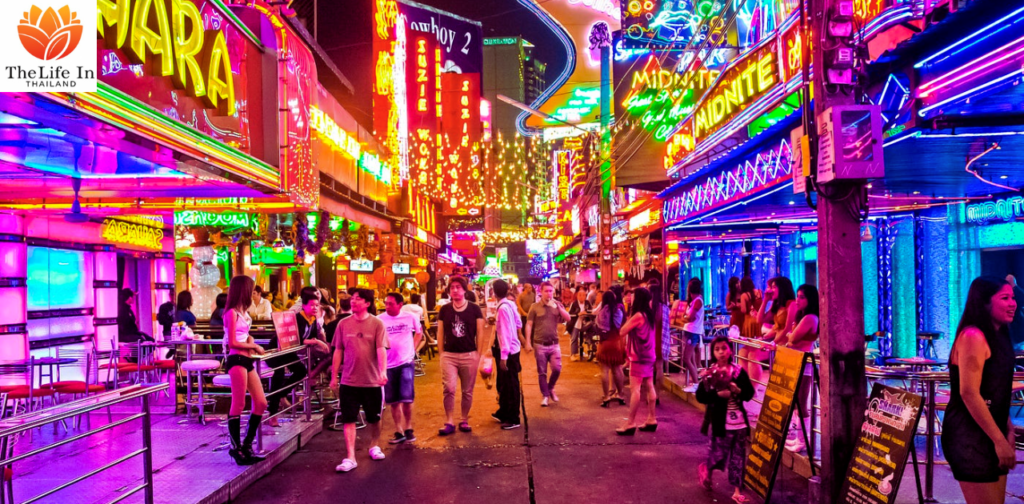Prostitution in Thailand stands at a unique juncture where cultural norms, legal frameworks, and human rights intersect. Despite being a widely discussed topic, there’s often confusion surrounding its legality and the intricacies of its regulation. This article aims to delve deeper into the multifaceted nature of prostitution in Thailand, exploring its legal complexities, cultural influences, and human rights considerations.


Legal Framework: A Closer Look
The legal framework surrounding prostitution in Thailand is a patchwork of laws and regulations that shape its practice and perception. The Prevention and Suppression of Prostitution Act of 1960 is often cited as the primary legislation governing prostitution. However, this law primarily focuses on criminalizing activities related to soliciting, procuring, and promoting prostitution, rather than the act of selling sex itself. This legal ambiguity leaves room for interpretation and varying enforcement practices across different regions of Thailand.
Additionally, the regulation of prostitution is further complicated by the presence of local ordinances and administrative measures that dictate the operation of entertainment venues and red-light districts. These regulations often vary from province to province, contributing to inconsistencies in enforcement and oversight.
The Role of Culture and Tourism
Culture and tourism play pivotal roles in shaping the landscape of prostitution in Thailand. The country’s rich cultural heritage, coupled with its reputation as a popular tourist destination, creates a fertile ground for the sex industry to thrive. Red-light districts such as Patpong in Bangkok and Walking Street in Pattaya have become synonymous with the country’s nightlife and entertainment scene, attracting both local and international visitors.
The influx of tourists, particularly those seeking to indulge in the exotic allure of Thailand’s nightlife, contributes to the demand for commercial sex services. This demand, in turn, fuels the growth of the sex industry and perpetuates the existence of red-light districts and entertainment establishments.
Social Stigma and Marginalization
Despite the semi-legal status of prostitution, sex workers in Thailand continue to face significant social stigma and marginalization. The profession is often associated with moral depravity and viewed as shameful by large segments of society. As a result, sex workers are marginalized and vulnerable to exploitation, violence, and abuse.
Furthermore, the intersection of gender, class, and ethnicity further exacerbates the inequalities faced by sex workers, particularly those from marginalized communities. Many individuals enter the sex industry due to economic necessity, lack of opportunities, or coercion, making them especially vulnerable to exploitation and human rights violations.
Human Rights Considerations
The treatment of sex workers in Thailand raises important human rights considerations that cannot be overlooked. While some argue for the legalization or decriminalization of prostitution as a means to afford sex workers greater rights and protections, others caution against the potential for exploitation and trafficking.
It is essential to recognize that many individuals engage in sex work due to systemic factors such as poverty, inequality, and lack of access to education and healthcare. Any approach to addressing prostitution in Thailand must prioritize the rights, dignity, and well-being of sex workers, while also addressing the root causes of exploitation and marginalization.
Efforts towards Reform and Empowerment
In recent years, there have been notable efforts to reform Thailand’s approach to prostitution and empower sex workers. Advocacy groups and organizations have called for the decriminalization of sex work, the protection of sex workers’ rights, and the implementation of harm reduction strategies.
Furthermore, initiatives aimed at providing alternative livelihoods, education, and healthcare services to sex workers have gained traction, signaling a shift towards a more rights-based approach. By addressing the systemic issues that drive individuals into the sex industry and empowering sex workers to assert their rights, Thailand can move towards a more just and equitable society for all its citizens.
Legalization Debate of prostitution in Thailand
While some argue for legalization as a pragmatic approach, others emphasize addressing root causes:
Legalization Pros:
Regulation: Legalizing and regulating the industry could enhance sex workers’ safety and health.
Economic Impact: It might contribute to the economy and reduce reliance on illegal activities.
Root Causes:
Education: Focusing on education and vocational training can empower vulnerable populations.
Alternative Opportunities: Creating alternative employment opportunities can reduce dependence on prostitution.
Conclusion
Prostitution in Thailand exists within a complex web of legal, cultural, and human rights considerations. Despite its semi-legal status, sex workers continue to face social stigma, discrimination, and human rights violations. Moving forward, it is imperative to adopt a holistic approach that prioritizes the rights and well-being of sex workers while addressing the root causes of exploitation and marginalization. Only through concerted efforts toward reform and empowerment can Thailand aspire to achieve a more just and equitable society for all.




